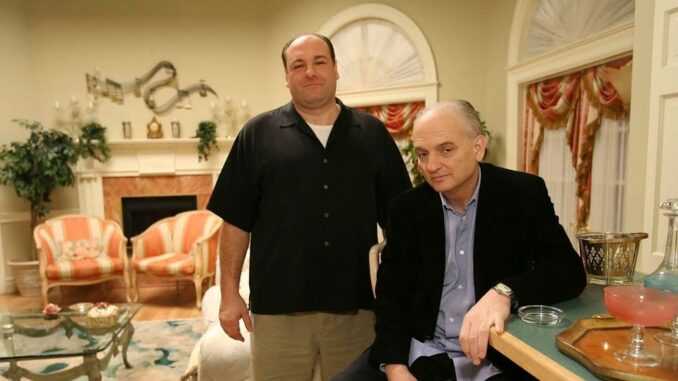
The Sopranos Turns 25: How David Chase’s Groundbreaking Series Changed TV Forever
It’s hard to believe that The Sopranos, the iconic mob drama created by David Chase, has been on air for 25 years. The show, which premiered on January 10, 1999, took the television world by storm and has since become a cultural touchstone. With its complex characters, intricate plotlines, and genre-defining approach, The Sopranos redefined what television could be.
In this article, we’ll dive deep into how this groundbreaking series flipped the script on traditional TV storytelling, raised the bar for dramas, and changed the way audiences consume media. Buckle up – this is a trip down memory lane and a look at how The Sopranos influenced everything we watch today.
The Birth of a TV Revolution
David Chase’s Vision: A New Kind of TV
Before The Sopranos, television was dominated by sitcoms and procedural dramas. But David Chase, a veteran writer and producer, had a different vision. He wanted to create a show that was more than just entertainment—it had to challenge the norms and push the boundaries of what TV could accomplish. Chase’s daring decision to blend mafia drama with family dynamics laid the groundwork for the genre-bending storytelling that followed.

Rather than focus on straightforward plots, The Sopranos delved deep into the psychology of its characters, exploring themes of identity, loyalty, and morality. The show wasn’t just about gangsters—it was about human beings with complex emotions and personal struggles.
The Sopranos: A Genre-Defining Show
More Than a Mob Drama
At first glance, The Sopranos might seem like just another mafia show. After all, it’s about Tony Soprano, a mob boss juggling family life with running a criminal empire. But the series quickly defied expectations, breaking free from the traditional genre of mobster tales. It offered a unique combination of:
- Psychological depth: Tony’s therapy sessions with Dr. Melfi provided insight into his psyche, elevating the series beyond crime drama.
- Family dynamics: While the show is set in the world of organized crime, it focuses heavily on the tension within Tony’s family.
- Moral ambiguity: Characters are neither entirely good nor bad, which made the audience question their own beliefs about right and wrong.
These elements created a level of storytelling complexity never before seen on television.
The Sopranos’ Impact on TV Drama
Paving the Way for ‘Golden Age of TV’
The success of The Sopranos marked the beginning of the “Golden Age of Television,” a period when TV shows were viewed as art rather than just entertainment. The Sopranos was a trailblazer in this movement, inspiring future hits like Breaking Bad, Mad Men, and The Wire. The show’s ability to mix dark humor, compelling drama, and sophisticated character development set a new standard.
Character Complexity: The Heart of The Sopranos
Tony Soprano: The Antihero We Needed
One of the most groundbreaking aspects of The Sopranos was its portrayal of Tony Soprano. Unlike the typical good guy protagonists of TV dramas, Tony is a deeply flawed character. He’s a ruthless mob boss, but he’s also a loving father, a vulnerable man grappling with anxiety, and someone struggling with his conscience. The character’s complexity invited audiences to look at the nature of heroism and villainy in a whole new way.
Supporting Cast: Breaking Stereotypes
The Sopranos also broke new ground with its supporting characters. Characters like Carmela, Dr. Melfi, and Paulie Walnuts weren’t just sidekicks—they had their own compelling arcs and depth. Carmela, for example, was no mere mob wife. She wrestled with her moral compass and her material desires, creating an engaging tension that made her one of the show’s most intriguing figures.
Psychological Depth and Therapy: A Revolutionary TV Tool
Tony’s Therapy: A Window Into His Soul
Tony Soprano’s therapy sessions with Dr. Jennifer Melfi weren’t just a gimmick—they were integral to the show’s exploration of psychology. These conversations allowed viewers to witness Tony’s vulnerabilities, doubts, and inner turmoil. In doing so, the show introduced a new way of portraying characters’ inner struggles on screen. Therapy became a tool for emotional depth in a way no other TV show had done before.
The Sopranos’ Cinematic Approach
Visual Storytelling at Its Best
Another reason The Sopranos is still revered today is its cinematic style. Unlike traditional TV shows of the time, which relied on standard shot compositions and formats, The Sopranos took risks with its visual storytelling. The series employed a rich, film-like quality, often using symbolic imagery and long, atmospheric shots that created mood and hinted at deeper themes.
The show also experimented with unconventional storytelling techniques. Flashbacks, dream sequences, and visual metaphors became integral parts of the narrative, allowing for more sophisticated storytelling.
Legacy of The Sopranos: Changing TV Forever
From Cable to Streaming: The Sopranos’ Enduring Influence
When The Sopranos began airing, it was part of a new wave of premium cable networks like HBO that were pushing boundaries in terms of content and quality. Today, we see that influence in the rise of streaming platforms, which offer similarly complex, character-driven content. Shows like Netflix’s Narcos or Apple TV’s Ted Lasso owe much of their style and success to the groundwork laid by The Sopranos.
The End of an Era: The Sopranos’ Final Episode
The Controversial Ending
One of the most talked-about aspects of The Sopranos was its series finale, which left audiences divided. The sudden cut to black in the final scene became a cultural phenomenon, sparking debates about what really happened. This open-ended conclusion was a bold move that challenged the audience’s expectations for closure, making it a perfect reflection of the show’s refusal to conform to traditional storytelling norms.
The Sopranos’ Cultural Impact
Shaping Modern TV and Pop Culture
Beyond just changing TV, The Sopranos made a lasting impact on popular culture. It introduced viewers to the world of antiheroes, who would go on to dominate TV in the years that followed. The show also gave rise to an entire subgenre of television—prestige TV—characterized by complex narratives, morally ambiguous characters, and high production values.
Conclusion: Why The Sopranos Still Matters
As The Sopranos celebrates its 25th anniversary, its impact on television remains undeniable. From redefining the role of antiheroes to revolutionizing narrative complexity, the show changed the way we think about TV. David Chase’s vision paved the way for an era of bold, sophisticated storytelling that still influences shows today.
While the world of television continues to evolve, The Sopranos will always be remembered as the catalyst that ushered in a new golden age. Its legacy lives on in the characters we love, the stories we crave, and the revolutionary approach to television that it pioneered.
5 Unique FAQs
1. What was the main theme of The Sopranos? The main theme of The Sopranos is the tension between personal life and criminal activity, particularly how Tony Soprano navigates his responsibilities as a mob boss and as a father, husband, and son.
2. How did The Sopranos change TV? The Sopranos introduced complex characters, non-linear storytelling, and psychological depth, paving the way for future shows that focused on antiheroes and darker, more intricate narratives.
3. Why is Tony Soprano considered an antihero? Tony Soprano is considered an antihero because, while he is a ruthless mob boss, he is also portrayed with vulnerability, showing both human flaws and admirable traits, making him both likable and detestable.
4. What was the controversy surrounding The Sopranos’ finale? The finale of The Sopranos ended on an ambiguous note, with a sudden cut to black, leaving viewers to interpret the fate of Tony Soprano. This open-ended conclusion sparked debates and theories about what happened.
5. How did The Sopranos influence future TV shows? The Sopranos influenced future shows by popularizing the idea of complex, morally ambiguous characters and intricate, layered storytelling. It helped to define what is now known as “prestige TV.”